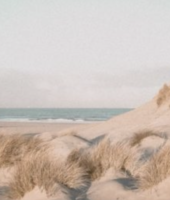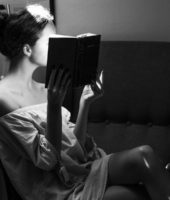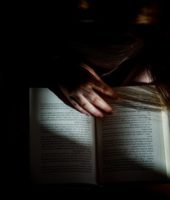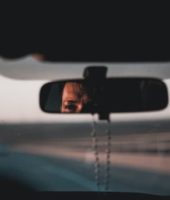When my daughter was 6 weeks old I started taking her to baby massage classes. They were held in the city farm, which was about a 15 minute walk away. At that point I was still in the thick of postnatal depression and my husband was working full time, so I hadn’t yet mustered the energy or courage to visit the local sling library. I didn’t know anything about baby wearing and no one told me that babies much prefer being held to pushchairs/cots or any other place away from their parents. So every Friday, for the entire duration of the 30 minute round trip to the farm, my daughter’s screams would punctuate the air of the otherwise sedate park we walked through to get there. I would arrive sweating and close to tears; embarrassed at the state I was in and desperate to leave before the class had even begun.
We finally got around to buying a sling a week or so later and I found myself emboldened by a new sense of confidence. My world opened up. My daughter would happily walk with me for as long as it took to reach a baby sensory class, my new mum friends in the park or our local cafe for (another) slice of cake.
I could tell you countless other stories just like this one. They would involve our desperate late night searches for swaddles, cot wedges and white noise sheep to help our daughter sleep in the bedside cot that she would never be put down in. I didn’t know that babies prefer the warmth of our skin and the reassuring sound of our breath, the rise and fall of our chests as opposed to anywhere else. No one told me that bed-sharing, when practised following the Lullaby Trust guidelines, was not only perfectly safe but would also bring more comfortable sleep for all of us.
All my stories of the early days of motherhood would end with the same two phrases – ‘I didn’t know’ and ‘no one told me’.
Oh but there are plenty of other things we’re told aren’t there? As new mothers, we’re bombarded with what not to do for example. In the 10 minutes after my daughter was born, I was told how NOT to breastfeed her (my breast was not to be used as her dummy: she was expected to feed on my terms not her own apparently). There was a whole raft of well-meaning advice that centred on what not to do based around making my life easier, without respecting the very real and urgent needs of my newborn daughter. I was also given advice on what to buy – the best baby products to spend my money on – and the right books to read for establishing one perfect routine. I was not to be led by my daughter or my own instincts it seems.
I lament the time and energy I spent planning her birth (in the end, not a peaceful home water-birth but an emergency c-section), but I can see now that that was a product of working with what I knew at the time. I knew I would be giving birth to a baby, because that is the end to virtually every motherhood/parenthood story we are presented with in popular culture. But we never get to see how that journey continues; it’s not the start of the story. So I didn’t know anything about what would follow her arrival. Nothing. At all. The only definitive information I had was that she would be leaving my body after approximately 10 months, so I set my course and sailed only towards that destination.
There are so many things I wish had been told (and not told) about becoming a mother. In part because it would have helped mitigate my chances of suffering from postnatal depression, as one of my biggest mental health triggers was the overwhelming feeling of being out of control. I was overwhelmed, my mothership tossed in the stormy seas of changes I had no idea how to manage. Luckily my GP was quick to diagnose me and provided a holistic treatment plan that I still follow today.
But now that I’m almost 18 months into my motherhood journey, I also wish I had had the right information to pass onto other mothers who were struggling silently just like me. The ones whose sympathetic eyes met as we learnt how to calm our babies’ nervous systems – without any idea how to do that for ourselves.
Because we don’t live in villages in the same way that we used to. Many hands don’t hold us or our babies. And particularly in the last year, we are having and raising babies almost entirely alone. So we don’t watch our sisters, friends or cousins navigate their motherhood journeys. We don’t help feed, comfort or wean so we don’t know how to do it. And if we don’t know how to do it and popular culture (by far the most common place we go to for understanding motherhood) isn’t giving us the full story, well then, we can’t help other mothers. The most valuable tool a mother has – word of mother-mouths – becomes corrupted by lack of information.
I write articles and essays on motherhood now, in the hope that we start to share the real stories of what it feels and looks like to become a mother. That we can start the motherhood story there. And that none of us has to utter the words “I didn’t know” or “no one told me” ever again.






